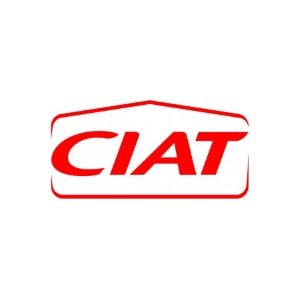CIAT UK - Experts & Thought Leaders
Latest CIAT UK news & announcements
CIAT Air Handling Units (AHUs) and Heat Recovery Units were installed at the Radisson RED Liverpool, the first outpost of the prestigious international hotel chain in the north of England. CIAT is a part of Carrier Global Corporation, a global pioneer in intelligent climate and energy solutions. Housed in a Grade II-listed property with roots dating back to the 1800s, the hotel is a blend of historical significance and contemporary design and a distinctive addition to the city’s hospitality offering. indoor air quality The property, which was originally a hotel known as Northern Western Hall before becoming student accommodation in the 1990s, underwent extensive renovations to transform it back to its original use as a 10-story hotel with 201 guestrooms and suites. The hotel decided to equip the property with CIAT’s HVAC solutions to ensure optimal indoor air quality for guests and staff. CLIMACIAT Air Access units CLIMACIAT Air Access units cover all main areas of the hotel, offering exceptionally quiet operation Five CLIMACIAT Air Access units from the company’s flagship AHU range provide high-quality comfort and fresh air for guests and staff, with integrated heat recovery systems making use of energy that would otherwise be lost from the building for ambient space heating and hot water production. They cover all main areas of the hotel, offering exceptionally quiet operation, so guests are not disturbed. CIATESA Heat Recovery Units Additionally, four CIATESA Heat Recovery Units provide filtered airflow and temperature and CO2 control for the meeting rooms in the basement area. CIAT worked closely with building services engineering specialists to ensure all of the equipment was delivered on time and to schedule. Simon Pearson, Area Chief Engineer at the Radisson RED Liverpool, said, "Ensuring the optimum comfort of our guests and staff is extremely important to us." a constant flow of clean air Simon Pearson adds, "The CIAT air handling units distribute a constant flow of clean air throughout the entire building, meaning we can rest assured our guests and staff are always in a healthy and comfortable environment. Additionally, they operate so quietly that they go virtually unnoticed, enhancing the overall ambiance of our hotel." flat pack service Dan Wood, Head of Sales for CIAT UK&I said, "Improving indoor air quality and comfort levels were key drivers in the overall approach to the project." He adds, "Due to site issues, we found storage for the AHUs and organized redelivery to meet the requirements of the site. Due to the size of one of the heat recovery units, we needed to provide our flat pack service to be able to get it down to the basement." CIAT monobloc chassis solution The equipment has been fully coastal-protected from the saline environment, as the hotel is less than a mile from the Liverpool Docks, and otherwise the moist, salt-laden air could corrode the metal surfaces of the AHUs. Each AHU came fully pre-built from the factory and mounted in a CIAT monobloc chassis solution to enable each AHU to be lifted as one whole piece to save time, overcoming challenges related to road closures during the project. The first crane lift with three of the AHUs happened overnight as the council couldn’t grant road closures during normal working hours.
Kepier School's phased transition to low-carbon CIAT heating technologies has delivered generous energy savings within a year of installation. CIAT worked with partners to initiate the school’s journey to net zero in 2022, returning to measure performance and optimize the system. CIAT is a part of Carrier Global Corporation, a global pioneer in intelligent climate and energy solutions. New high-efficiency heat emitters CIAT worked with BREng Hull Ltd, AA Projects, Quora Group, and Cool Designs Ltd to create a phased decarbonization plan for Kepier School in Northeast England, aided by the Condition Improvement Fund (CIF). Recognizing the challenges faced by many schools, Oliver Sanders, Carrier Commercial HVAC Director, United Kingdom, and Ireland, said, "For schools with new gas boilers aiming to reach net zero, it's most cost-effective to integrate them into a modernized heating infrastructure, ready for the next transition phase to heat pumps when the boilers reach end-of-life." Project featured a heating audit The project involved a heating audit identifying the need for new high-efficiency heat emitters The project involved a heating audit identifying the need for new high-efficiency heat emitters. Conventional radiators were replaced with seven surface-mounted high-level CIAT MajorLine and 31 CIAT COADIS fan coil units (FCUs). The seven gas boilers installed in 2019 were integrated into the new system's infrastructure, enabling them to be replaced as required to improve system efficiency and cost savings. Sizeable energy savings A subsequent review revealed sizeable energy savings. Gas usage was compared before and after the pandemic to avoid skewed data due to COVID-19 school closures. Findings revealed an 8.6% reduction of 2,824 m3 (~31,446.41 kWhr) from March 2022 to March 2023 compared to the period from March 2019 to March 2020. This achievement reduced the school’s carbon footprint and resulted in an 8% annual cost saving of ~£800 (average based on gas price fluctuations between March 2019-2020 and March 2022-2023). CIAT project partners BREng Hull CIAT project partners BREng Hull and installer Quora Group returned to the school to optimize system operating gains Following commission, CIAT project partners BREng Hull and installer Quora Group returned to the school to optimize system operating gains. "The process doesn’t stop once a solution has been designed, installed, and commissioned," said Rob Smelt, Managing Director of BREng Hull, adding "Experience shows that there are often significant additional gains to be made by optimizing the system in light of its real-world operation." The inspection revealed that some areas were imbalanced while others operated at sub-optimal temperatures. These issues were addressed to improve occupant comfort and reduce energy use and running costs. Carrier’s 2030 ESG Goal "The comfort level has improved significantly," said Brian Dixon, Kepier School Estates Manager, adding "We already gained control over specific rooms and areas, as opposed to the old ‘on or off’ heating system, and the latest work seems to have improved things even more. Future phases in our decarbonization plan will yield even greater energy and cost savings for the school." BREng Hull worked closely with equipment supplier Cool Designs Ltd during the scoping and specification stages, supported by CIAT application specialists. Projects like these contribute to Carrier’s 2030 Environmental, Social and Governance (ESG) Goal of reducing its customers’ carbon footprint by more than one gigaton.
As UK decarbonization gathers momentum, CIAT UK is collaborating with consultants and distribution partners in a pioneering approach to help schools transition to low-carbon heating technologies as part of a planned, phased strategy. The project follows Carrier’s recent successful Public Sector Decarbonization Scheme (PSDS) projects for more than 60 schools in London, the Midlands, and Yorkshire. CIAT is a part of Carrier Global Corporation, the provider of healthy, safe, sustainable, and intelligent building and cold chain solutions. net zero solutions "Achieving net zero in a single bound is a challenge for schools and other end users, particularly for those who have recently installed new gas-fired boilers," said James Hughes, Commercial HVAC Vertical Market Sales Manager, Carrier, and CIAT UK. James Hughes adds, "With many schools, the solution is to help them plan for a phased transition, with upgraded heating infrastructure put in place now, ready for the future switch from gas to heat pumps." decarbonization plan The key is to upgrade heat emitting systems, so the move to low-carbon heat pumps can be made seamlessly" The phased approach is successfully working at Kepier School in North East England, which installed seven new gas boilers three years ago. CIAT UK worked with project partners BReng Hull, consultant AA Projects, installer Quora Group and equipment supplier Cool Designs, to help develop a long-term decarbonization plan for the school, with funding under the Condition Improvement Fund (CIF). "The key is to upgrade heat emitting systems, so the move to low-carbon heat pumps can be made seamlessly when the time comes to replace end-of-life gas-boilers," said Rob Smelt, Managing Director, BReng Hull, adding "This ensures valuable capital is used to maximum effect while moving towards net zero on a planned time track with future-ready infrastructure in place." CIAT fan coil units A heating audit at the school identified the requirements for a new system of high-efficiency heat emitters. New high-level CIAT fan coil units (FCUs) were mounted within ceilings and on surfaces, allowing the equipment to be installed while the school continued to operate with the existing heating system still using the gas boilers. The project included the removal of conventional radiators and replacement with 31 CIAT COADIS and seven MajorLine FCUs. Boilers help in cutting carbon emissions "The new units were selected based on the outputs achievable with lower water temperatures,” said Rob Smelt, adding “This allows the school to undertake decarbonization in two stages. The new boilers operate at lower temperatures in full condensing mode, saving energy, reducing running costs, and cutting carbon emissions." Rob Smelt continues, "When the boilers are replaced with high-efficiency air-source CIAT heat pumps, the correctly sized heat emitters are already in place to enable a seamless transition, delivering immediate savings and spreading investment costs." Heat emitters The new system reduced the water temperature to 50deg C, yielding a 30deg C reduction in the heating uplift Step one in the decarbonization process delivers significant energy savings for the school. The savings have been enhanced due to the high 80deg C water before the new heat emitters were installed. The new system has reduced the water temperature to 50deg C, yielding a 30deg C reduction in the heating uplift required, and saving 70kw of energy every day during the heating season. This equates to an annual energy saving of 9,800kWhr of gas and a reduction in carbon emissions of 1,800kg CO2. inverter-controlled water pumps The heating audit also revealed some issues with the existing heating system, resulting in wasted energy and poor comfort conditions. Some classrooms were overheating year-round due to inadequate control of fan convectors, with hot water continuing to circulate even though the set temperature had been achieved and the fan switched off. The new system uses dedicated classroom-based controls and inverter-controlled water pumps to reduce energy use and improve year-round comfort conditions. reliable and efficient In terms of controllability and cost per kilowatt output, no other manufacturer can compete with CIAT units" "The CIAT units are reliable and highly efficient," says Rob Smelt, adding "In terms of controllability and cost per kilowatt output, no other manufacturer can compete with them." Brian Dixon, Estates Manager, Kepier School, said "All the work was done out of normal working hours and at weekends, to avoid disrupting the day-to-day running of our busy school. As a result, no lessons were interrupted. This was achieved by careful planning and cooperation throughout the process by all involved." Energy and cost savings Deborah Minns, Director of Finance and Resources, Kepier School, said, "Learners can now sit for exams in the perfect temperature. We are making savings in energy costs and are fit for the future." BReng Hull worked closely with equipment supplier Cool Designs Limited during the scoping and specification stages, supported by CIAT UK application specialists. Projects such as the phased decarbonization strategy for Kepier School contribute to Carrier’s 2030 Environmental, Social & Governance (ESG) Goal of reducing its customers’ carbon footprint by more than one gigaton.
Leveraging Radiant And Hydronics To Help Achieve Decarbonization Goals
DownloadSealed Connectors In Harsh Environments
DownloadPowering And Cooling Next Generation Data Centers
DownloadDebunking Myths To Promote A Bright Future For Heat Pumps
DownloadOptimizing Comfort: The Ultimate HVAC Component Guide
Download









